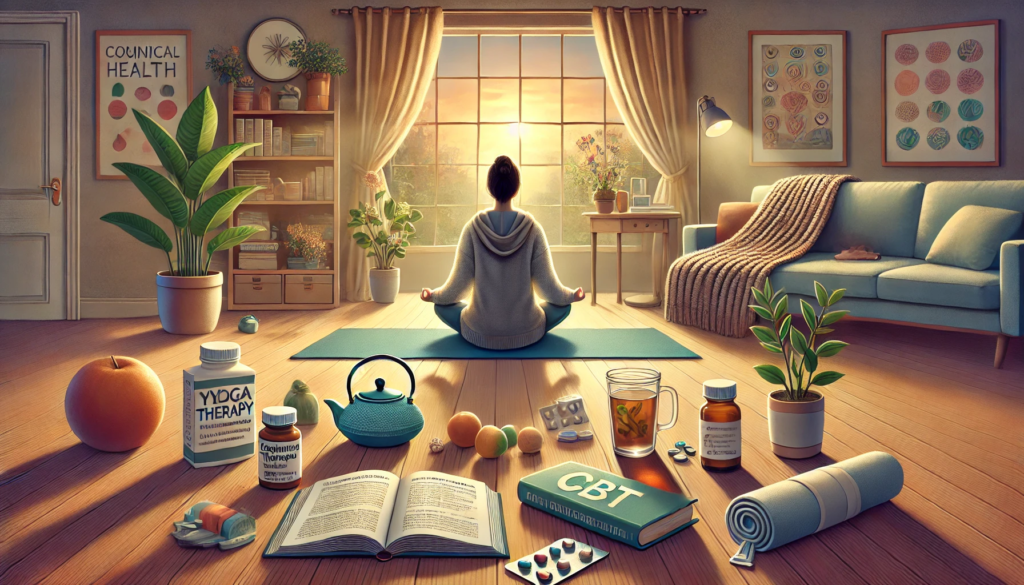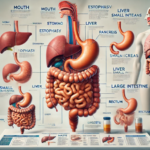Depression is a common mental health condition that can profoundly affect an individual’s emotional and physical well-being. It is characterized by persistent feelings of sadness, hopelessness, and a lack of interest in daily activities. While depression can be challenging, various techniques and treatments can help manage symptoms and improve mood. This article explores a range of strategies, including medical treatments, therapy, lifestyle changes, and self-care practices, to support individuals in managing depression.
Understanding Depression
Depression, also known as major depressive disorder (MDD), involves a complex interplay of genetic, biochemical, environmental, and psychological factors. It is more than just a temporary feeling of sadness; it is a serious condition that requires attention and care. Symptoms of depression can include:
- Persistent sadness or emptiness
- Loss of interest in previously enjoyed activities
- Changes in appetite and weight
- Sleep disturbances (insomnia or oversleeping)
- Fatigue and low energy
- Difficulty concentrating
- Feelings of worthlessness or guilt
- Thoughts of death or suicide
Given the multifaceted nature of depression, treatment often involves a combination of approaches tailored to an individual’s needs.
Medical Treatments
1. Antidepressant Medications
Antidepressant medications are often prescribed to help alleviate the symptoms of depression. They work by balancing neurotransmitters in the brain, which play a key role in mood regulation. Common types of antidepressants include:
- Selective Serotonin Reuptake Inhibitors (SSRIs): Such as fluoxetine (Prozac), sertraline (Zoloft), and escitalopram (Lexapro).
- Serotonin-Norepinephrine Reuptake Inhibitors (SNRIs): Such as venlafaxine (Effexor) and duloxetine (Cymbalta).
- Tricyclic Antidepressants (TCAs): Such as amitriptyline and nortriptyline (Pamelor).
- Atypical Antidepressants: Such as bupropion (Wellbutrin) and mirtazapine (Remeron).
It is important to work closely with a healthcare provider to find the right medication and dosage, as responses to antidepressants can vary. It may take several weeks to notice improvements, and potential side effects should be discussed with a doctor.
2. Psychotherapy
Psychotherapy, or talk therapy, is a valuable component of depression treatment. It involves working with a mental health professional to explore thoughts, feelings, and behaviors. Common forms of psychotherapy include:
- Cognitive-Behavioral Therapy (CBT): Focuses on identifying and changing negative thought patterns and behaviors. CBT is highly effective in treating depression and involves techniques such as cognitive restructuring and behavioral activation.
- Interpersonal Therapy (IPT): Focuses on improving interpersonal relationships and communication skills. IPT can help individuals navigate life transitions, resolve conflicts, and manage grief.
- Psychodynamic Therapy: Explores unconscious thoughts and past experiences that may contribute to current symptoms. This approach can help individuals gain insight into their emotions and behaviors.
3. Electroconvulsive Therapy (ECT)
Electroconvulsive therapy (ECT) is a medical treatment used for severe depression that has not responded to other treatments. ECT involves administering controlled electrical currents to the brain, inducing a brief seizure. This procedure can provide rapid relief from symptoms and is typically performed under general anesthesia.
Lifestyle Changes and Self-Care
In addition to medical treatments, lifestyle changes and self-care practices can play a crucial role in managing depression and enhancing overall well-being.
1. Physical Activity
Regular physical activity has been shown to have a positive impact on mood and mental health. Exercise releases endorphins, which are natural mood lifters, and can help reduce symptoms of depression. Activities such as walking, running, yoga, and dancing can be particularly beneficial. Aim for at least 30 minutes of moderate exercise most days of the week.
2. Healthy Diet
Nutrition plays a significant role in mental health. A balanced diet rich in whole foods, including fruits, vegetables, whole grains, lean proteins, and healthy fats, can support brain function and mood regulation. Certain nutrients, such as omega-3 fatty acids, B vitamins, and magnesium, are particularly important for mental well-being.
3. Adequate Sleep
Sleep disturbances are common in depression and can exacerbate symptoms. Establishing a regular sleep routine, creating a relaxing bedtime environment, and avoiding stimulants (such as caffeine) before bed can improve sleep quality. Aim for 7-9 hours of sleep per night.
4. Mindfulness and Relaxation Techniques
Mindfulness practices, such as meditation, deep breathing exercises, and progressive muscle relaxation, can help reduce stress and improve emotional regulation. These techniques promote relaxation and can help individuals stay present and focused, reducing the impact of negative thoughts.
5. Social Support
Building and maintaining strong social connections can provide emotional support and reduce feelings of isolation. Reach out to friends, family, or support groups, and consider joining community activities or clubs. Sharing experiences and talking about feelings with trusted individuals can be therapeutic.
6. Limiting Alcohol and Substance Use
Alcohol and recreational drugs can worsen depression symptoms and interfere with treatment. It’s important to limit or avoid substance use and seek help if needed to address any substance use issues.
Alternative and Complementary Therapies
Some individuals find relief from depression symptoms through alternative and complementary therapies. While these approaches should not replace conventional treatments, they can be used alongside them to enhance well-being.
1. Herbal Supplements
Certain herbal supplements, such as St. John’s wort and SAMe (S-adenosylmethionine), have been studied for their potential antidepressant effects. However, these supplements can interact with medications, so it’s important to consult with a healthcare provider before use.
2. Acupuncture
Acupuncture, an ancient Chinese practice that involves inserting thin needles into specific points on the body, has been explored as a treatment for depression. Some studies suggest it may help alleviate symptoms, though more research is needed.
3. Light Therapy
Light therapy, also known as phototherapy, involves exposure to bright artificial light. It is commonly used to treat seasonal affective disorder (SAD), a type of depression that occurs during certain seasons, typically winter. Light therapy can help regulate circadian rhythms and improve mood.
Seeking Professional Help
If you or someone you know is struggling with depression, it’s important to seek professional help. A healthcare provider can provide a comprehensive evaluation, diagnose the condition, and recommend an appropriate treatment plan. Depression is a treatable condition, and with the right support, individuals can manage their symptoms and lead fulfilling lives.
Conclusion
Managing depression involves a multifaceted approach that includes medical treatments, therapy, lifestyle changes, and self-care practices. Each individual’s experience with depression is unique, and treatment plans should be tailored to meet their specific needs. By incorporating a combination of techniques and seeking professional support, individuals can effectively manage their symptoms and work towards improved mental well-being. Remember, it’s important to reach out for help and prioritize mental health care.
FAQs
What is the most effective treatment for depression?
The most effective treatment for depression varies depending on the individual. It often involves a combination of antidepressant medications, psychotherapy, and lifestyle changes. Working with a healthcare provider can help determine the best approach.
Can lifestyle changes alone help manage depression?
Lifestyle changes, such as regular exercise, a healthy diet, adequate sleep, and mindfulness practices, can significantly improve symptoms of depression. However, they may not be sufficient for everyone, and medical treatment may also be necessary.
How long does it take for antidepressants to work?
Antidepressants typically take several weeks to start working. It’s important to continue taking the medication as prescribed and consult with a healthcare provider if there are concerns about side effects or effectiveness.
Is it possible to prevent depression?
While it’s not always possible to prevent depression, maintaining a healthy lifestyle, managing stress, and seeking early treatment can reduce the risk and severity of symptoms.
How can I support a loved one with depression?
Supporting a loved one with depression involves being understanding, listening without judgment, encouraging them to seek professional help, and offering practical support. It’s also important to take care of your own mental health.
Can depression go away on its own?
In some cases, mild depression may improve over time without treatment. However, moderate to severe depression often requires treatment to alleviate symptoms and prevent recurrence. Seeking professional help is important for managing the condition.



